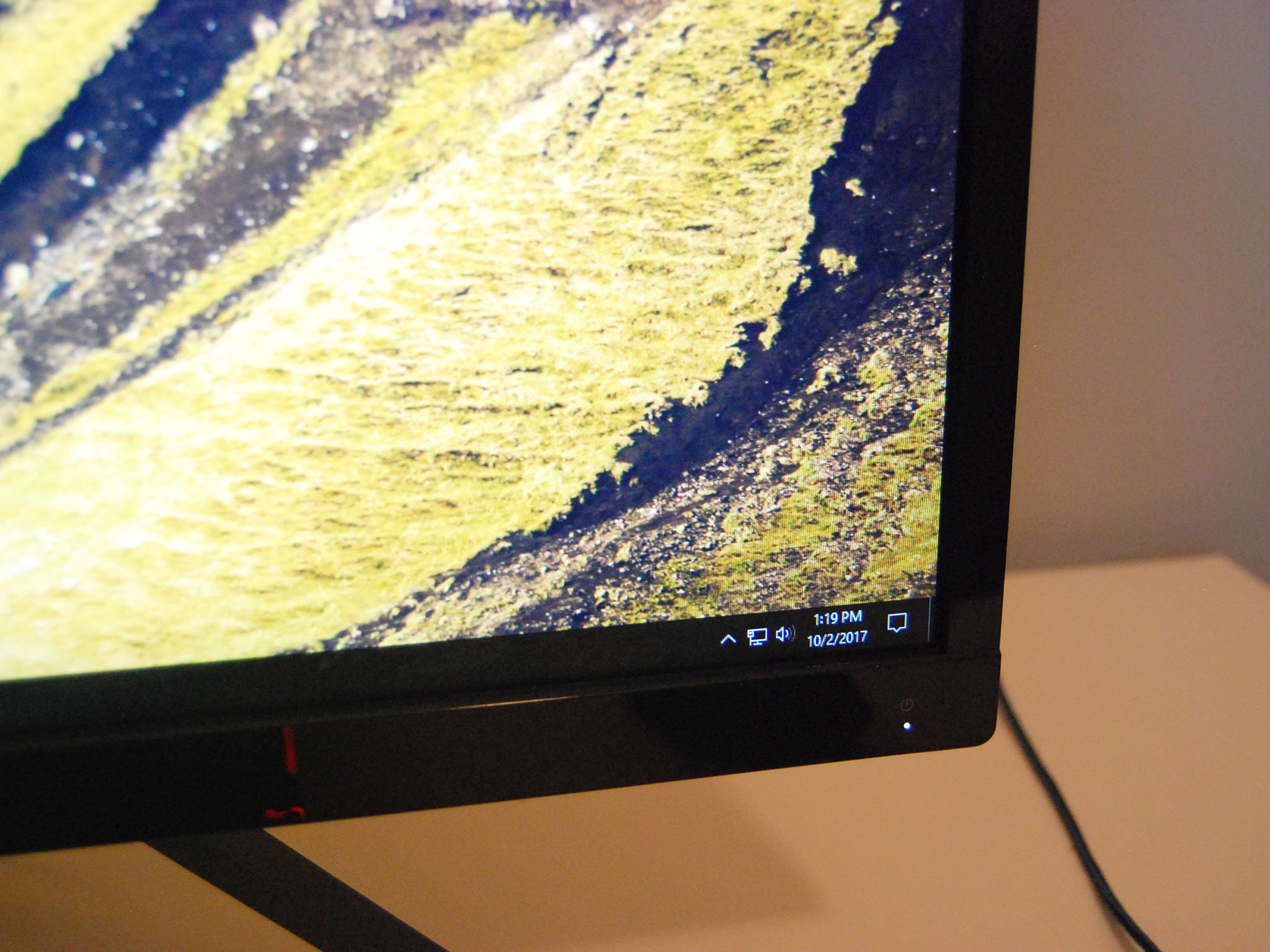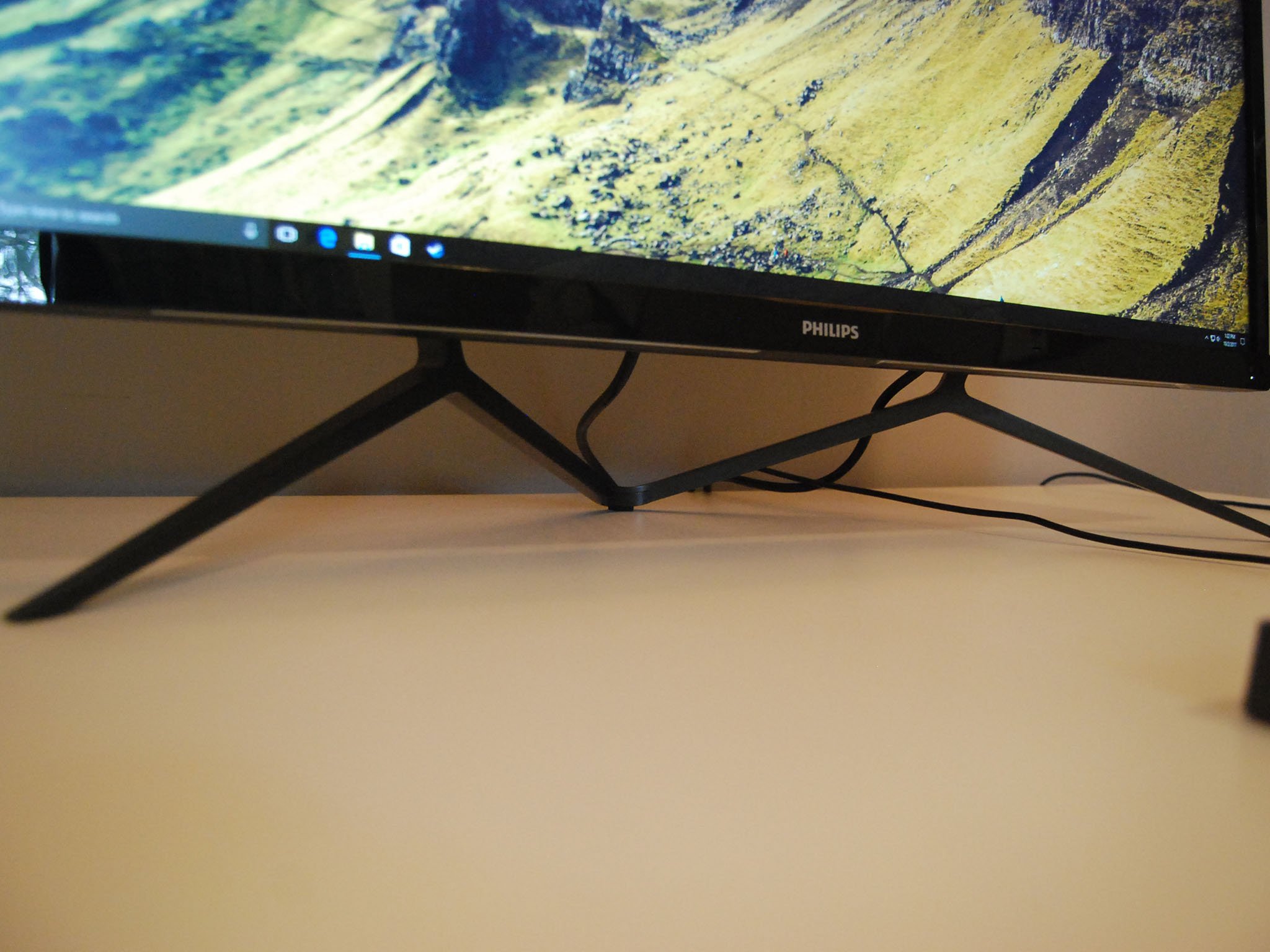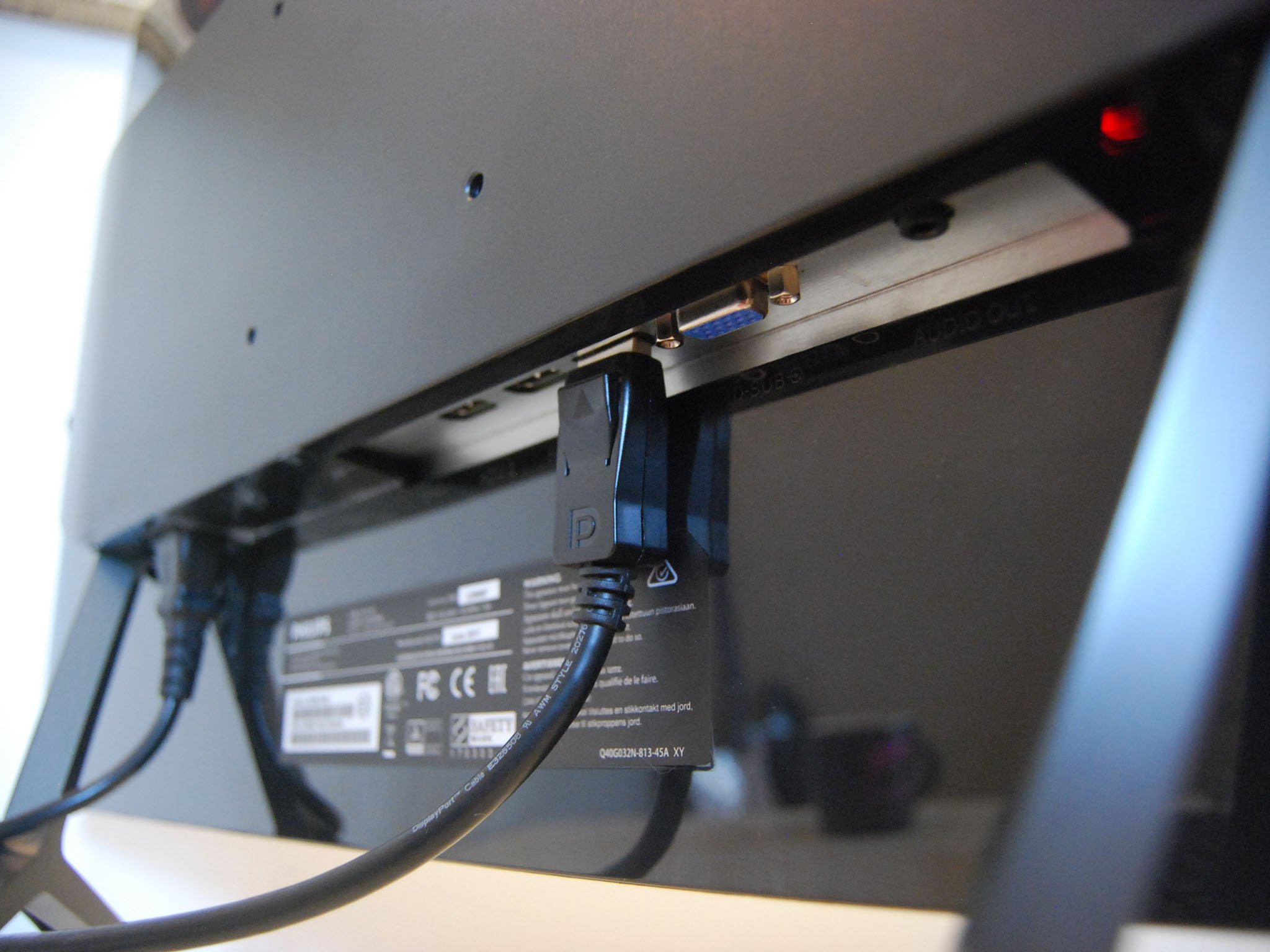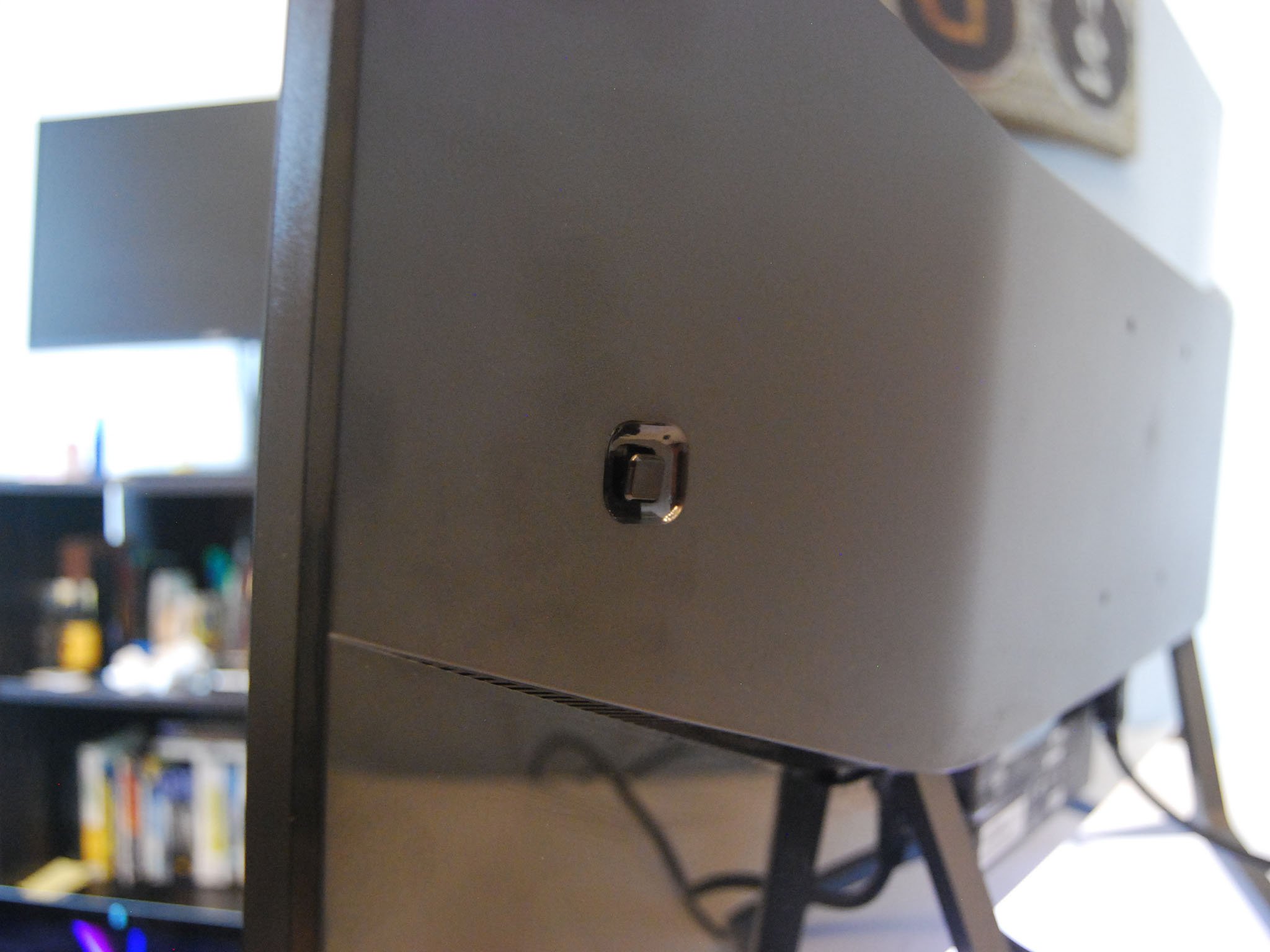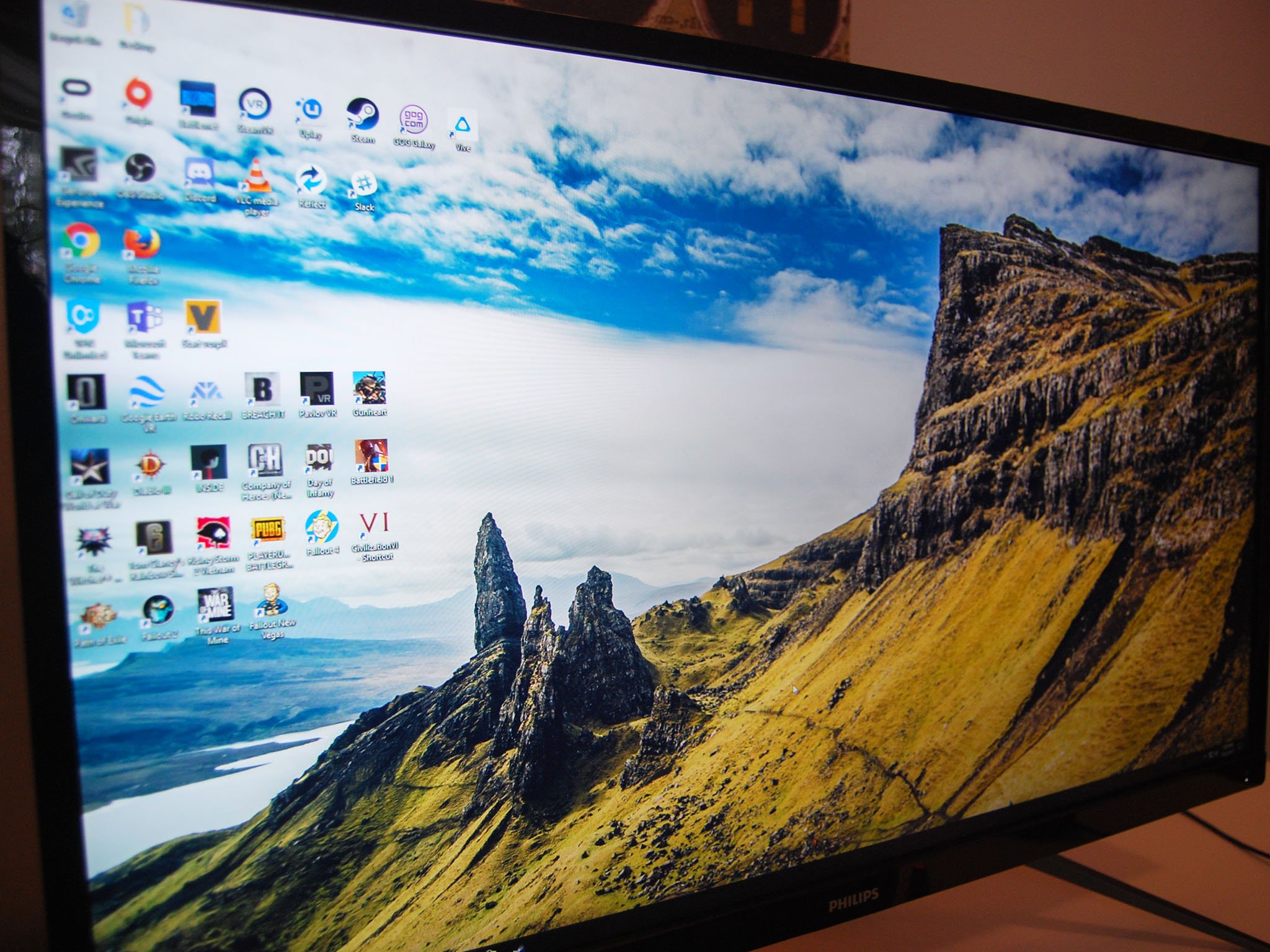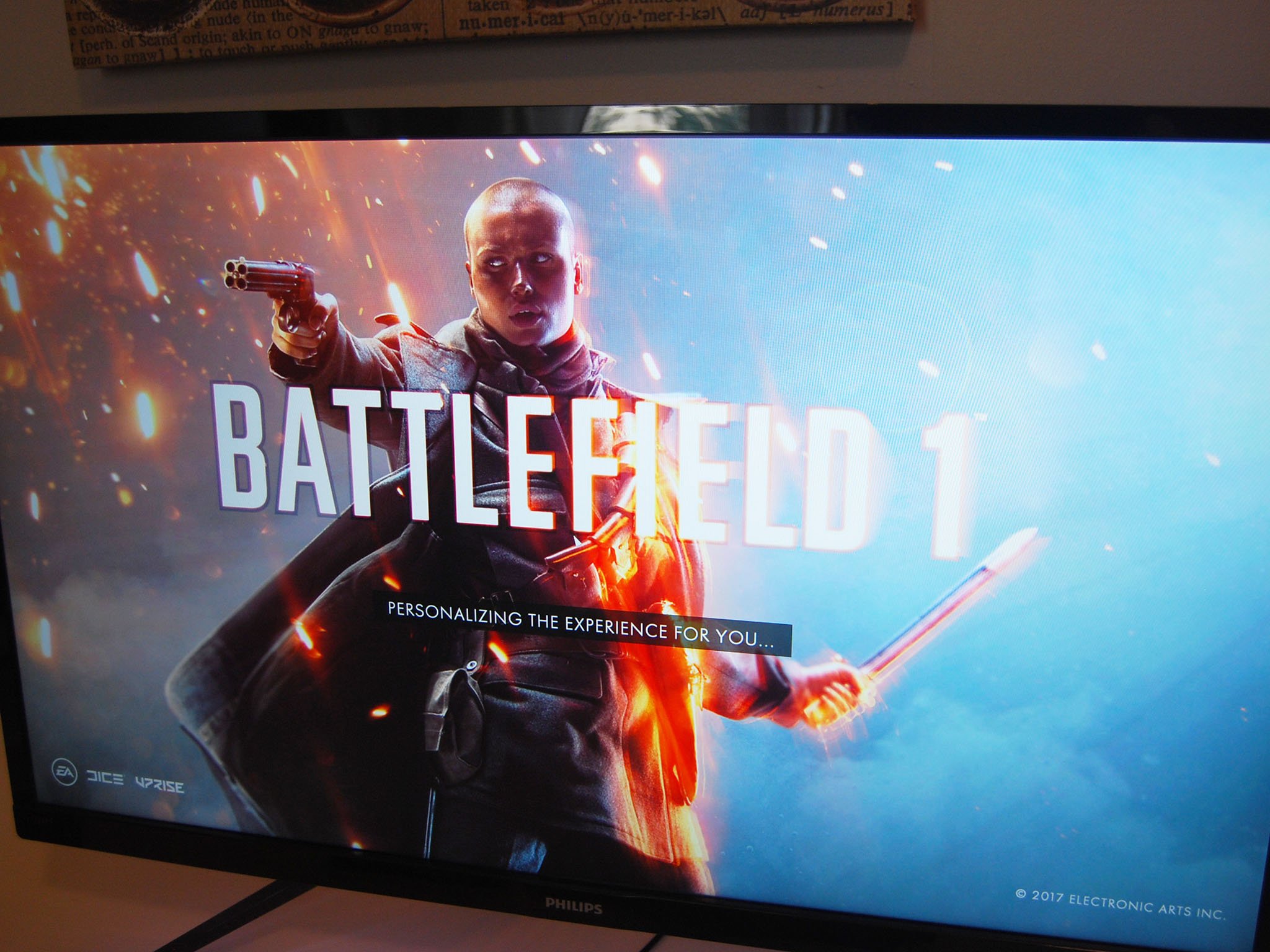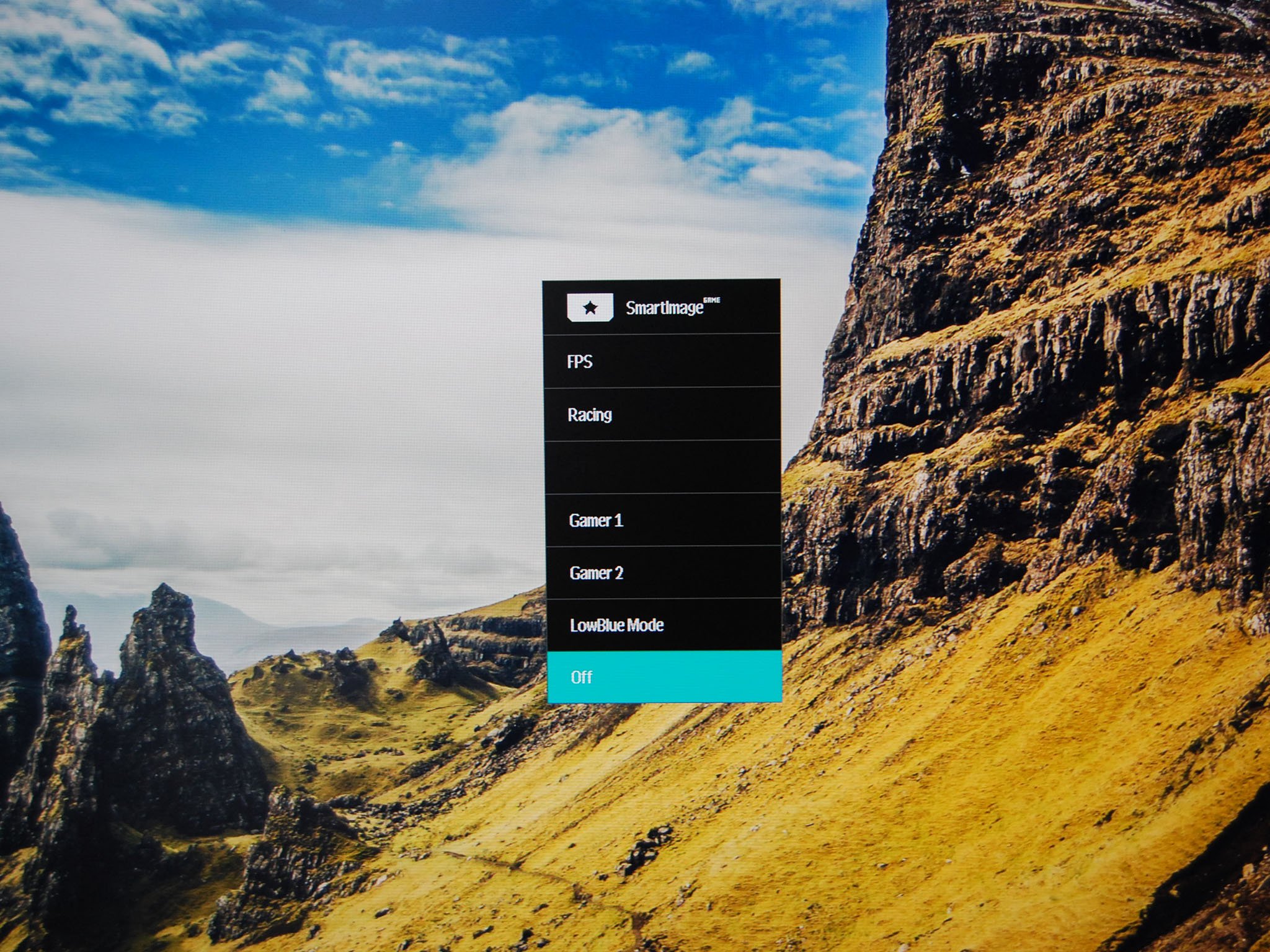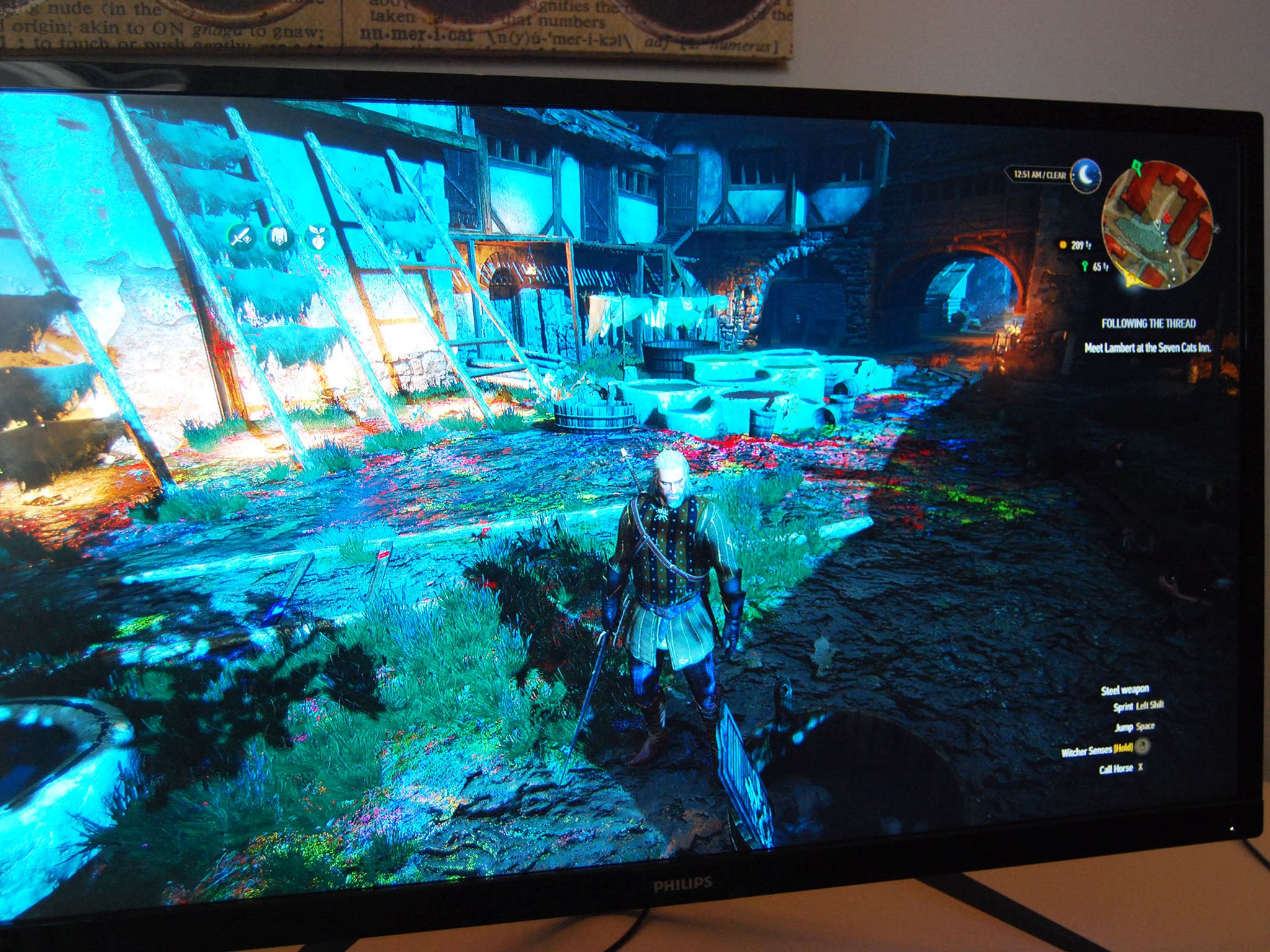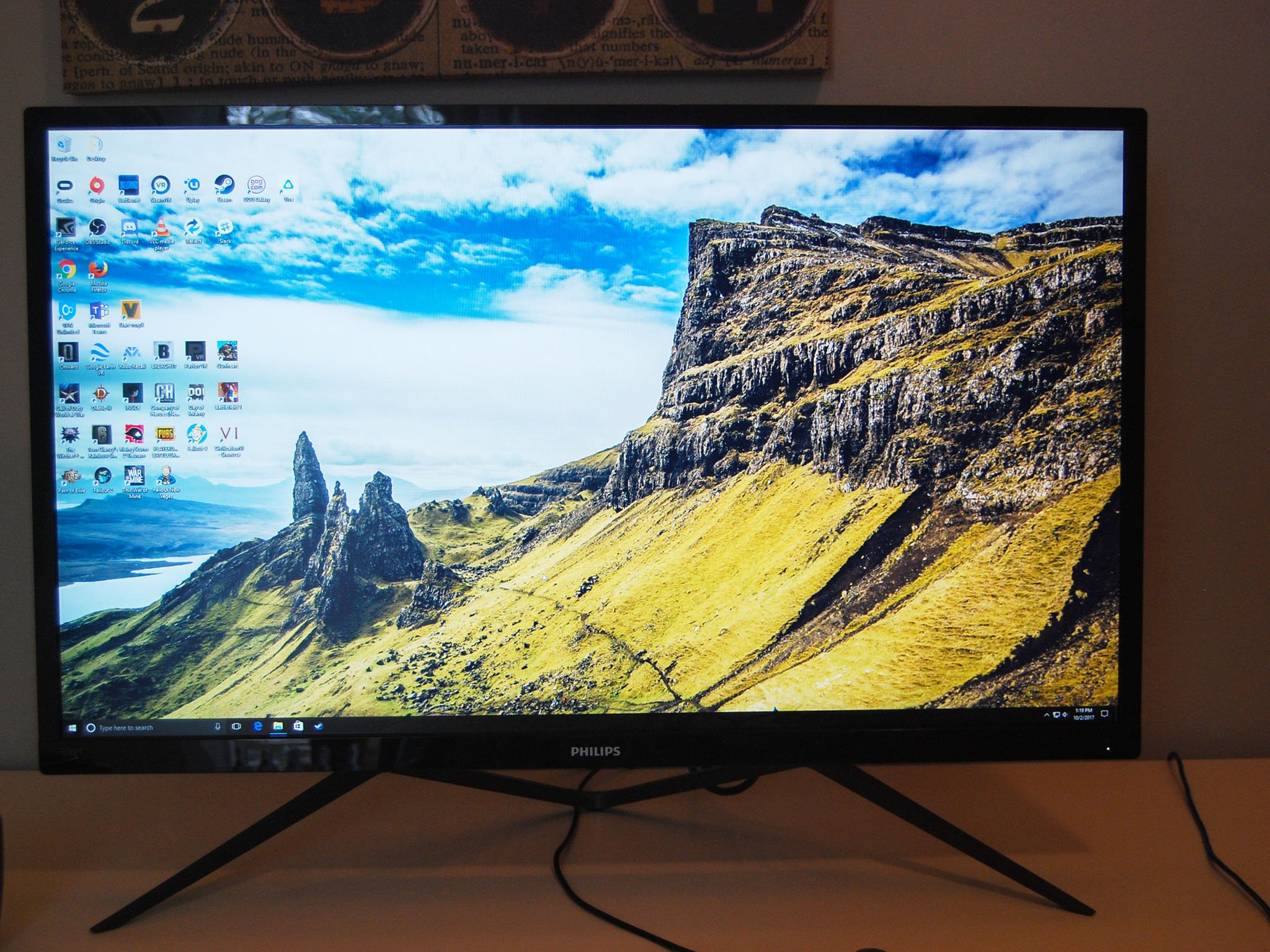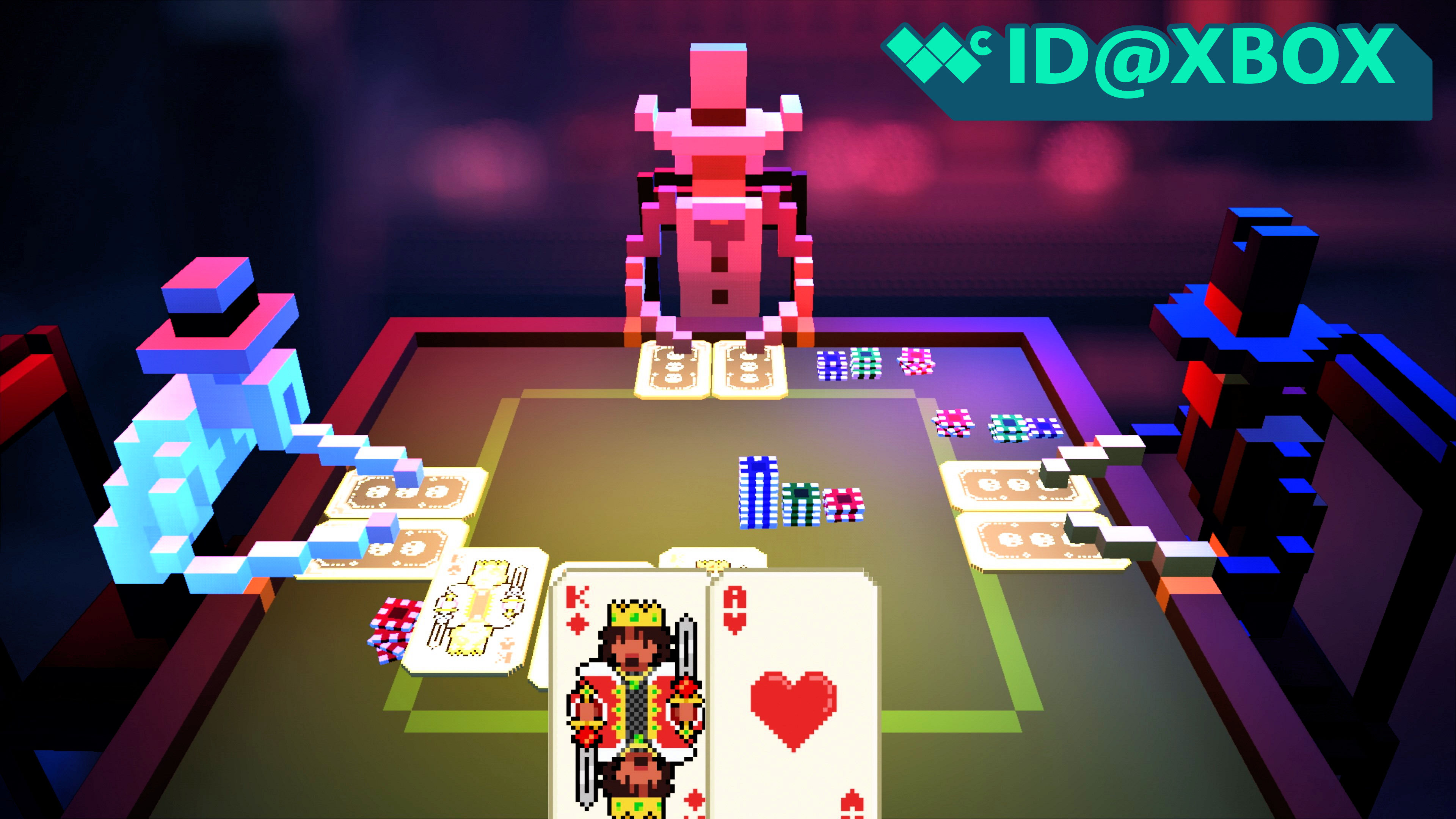
The new Philips M-line collection of monitors is intended for use by a wide audience. It has a respectable response time and some interesting settings for gamers, a QHD resolution that provides more screen real estate, a crisp picture, and it has a few extra features that make the price tag even more attractive, including AMD FreeSync.
If you're interested in a big, multipurpose monitor with great color, the Philips Momentum 326M might be for you. Let's take a closer look in our review.
About this review
Philips sent Windows Central a review unit of the 31.5-inch Momentum 326M monitor. This monitor costs about $330.
Philips Momentum 326M tech specs
| Category | XX |
|---|---|
| Size | 31.5 inches |
| Panel type | In-Plane Switching (IPS) |
| Brightness | 250 nits |
| Contrast | 1200:1 |
| Response time | Eight millisecond (Typical) Five millisecond (Minimum) |
| Refresh rate | 60Hz |
| Resolution | 2,560 x 1,440 (QHD) |
| Aspect ratio | 16:9 |
| Viewing angle | 178 degrees |
| Speakers | None |
| Sync Tech | AMD FreeSync |
| Ports | Two HDMI 1.4 DisplayPort 1.2 VGA 3.5mm jack |
| Tilt | -5 degrees / +10 degrees |
| Weight | 14.5 lbs (6.60 kg) |
| VESA | 100 mm x 100 mm |
| Color | Black |
| Price | About $330 |
First impressions
Philips Momentum 326M display design
The Philips Momentum 326M has a static stand design, no doubt partly due to its size. Instead of coming packaged as two parts — stand and monitor — it comes as a single piece. The stand has a flattened M shape to it, with legs reaching almost to each edge and to the back for balance.
It's plenty sturdy, and there's no threat of this big monitor tipping, but it only allows for a bit of tilt forward and back. There's no changing the height or rotating the screen, something that, if you're used to is hard to let go of. The size of this monitor might be a problem for some, especially those with limited space on their desks. Luckily, for a bit more freedom, the monitor can be VESA mounted.
All the latest news, reviews, and guides for Windows and Xbox diehards.
The majority of the chassis is just under an inch thick, with a wider portion near the middle for ports and for the stand attachment. You have decent connectivity options, with two HDMI 2.0, DisplayPort 1.4, VGA, and a 3.5-mm audio jack. Ports are spaced properly, and connecting multiple devices simultaneously won't pose a problem.
On the front of the monitor is the Philips logo and a small LED to show power stages. Other than that, it's just shiny black bezel. To adjust settings, there is a single, flat joystick located on the back of the monitor which, after some getting used to, is much more intuitive than a usual multi-button menu setup.
Big and beautiful
Philips Momentum 326M display
Coming from a 27-inch setup, 31.5 inches seems initially like a big jump, but after using it for about two weeks, it's all I want to use. The IPS panel has the standard 178-degree viewing angle, which is what you want if you're using this in a multi-display setup where you aren't facing it head-on.
The 2,560 x 1,440 resolution looks fantastic at this size, and right out of the box, the color and contrast are pretty much spot on. Testing color accuracy, we saw 100 percent sRGB and 90 percent AdobeRGB. These are both excellent results, and they're evident in everyday use. Playing video games was very enjoyable — did we mention how big this monitor is? — and, if I had an AMD graphics card, I'd be able to take advantage of AMD FreeSync technology for an even smoother picture.
The five millisecond response time and 60Hz refresh rate aren't quite optimal if you're looking for a gaming monitor — typically a high-end gaming display has a one millisecond response time and a 144Hz refresh rate — but for pretty much any other task, these specs are not an issue.
The LED backlight is advertised as 250 nits bright, but, in reality, seems much brighter. You won't have problems using it in a well-lit room — also helped by the matte finish that cuts down glare — and a blue-light filter preset that toggles on and off with a couple of clicks takes care of working in the dark.
Branding!
Philips Momentum 326M extras
Philips included what it calls "SmartImage," which provides six picture presets based on activities. An FPS preset gives you better dark contrast, Racing has the best response time and high saturation, RTS has user-selected highlighted portions, LowBlue cuts out blue light, and two gamer profiles are available for custom presets. The small joystick on the back of the monitor can be used to immediately switch between these presets.
The branded features continue with "Ambiglow," which is essentially 10 lights built into the bottom edge of the monitor that project color based on whatever you're viewing on your display. There are three brightness settings, but you likely won't want to go above the lowest; otherwise, you'll see each individual light reflected rather than an ambient glow. If mounted on a wall, you'd no doubt get the same effect.
Finally, there's a "SmartContrast" function that automatically adjusts the backlight and contrast of the display depending on the task at hand. Working on a Word document with a white background? The backlight dims. Playing DOOM? Contrast is upped so that you can see into dark corners. These extras are a nice addition to an already great monitor and are something you might not always find on a monitor at this price.
TL;DR
Philips Momentum 326M review conclusion
The response time and refresh rate could be better for dedicated gamers, and the wide stand doesn't allow for height adjustment or rotation. Other than that, it's hard to find faults in this monitor.
With plenty of customizable settings options in the on-screen display, a few extra features that help with the picture quality for gamers (including AMD FreeSync), and an outstanding picture with impressive contrast and color, the Philips Momentum 326M is a solid option when shopping for a big screen.
Pros:
- Supports AMD FreeSync.
- Fully customizable picture.
- Sturdy build.
- Decent price.
Cons:
- Ambiglow is kinda gimmicky.
- No height or rotation adjustment.

Cale Hunt brings to Windows Central more than nine years of experience writing about laptops, PCs, accessories, games, and beyond. If it runs Windows or in some way complements the hardware, there’s a good chance he knows about it, has written about it, or is already busy testing it.

